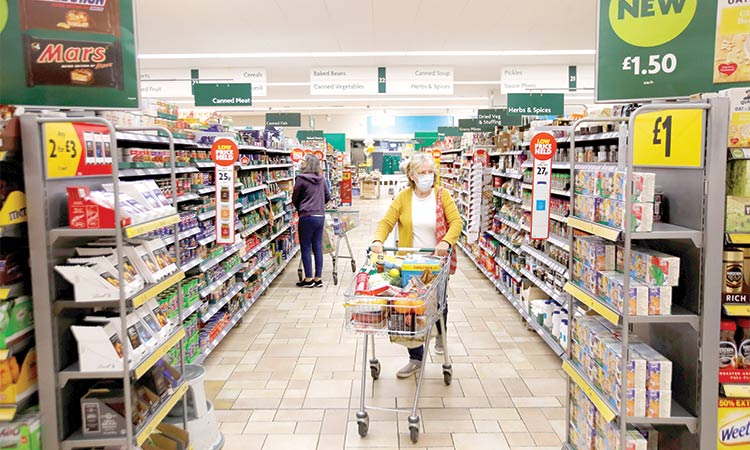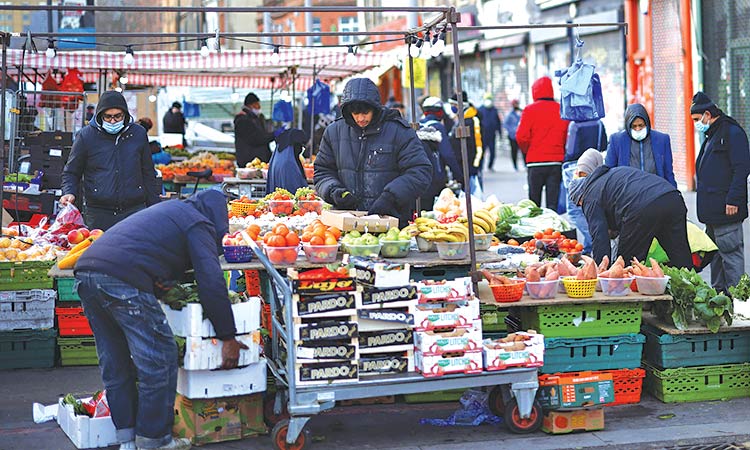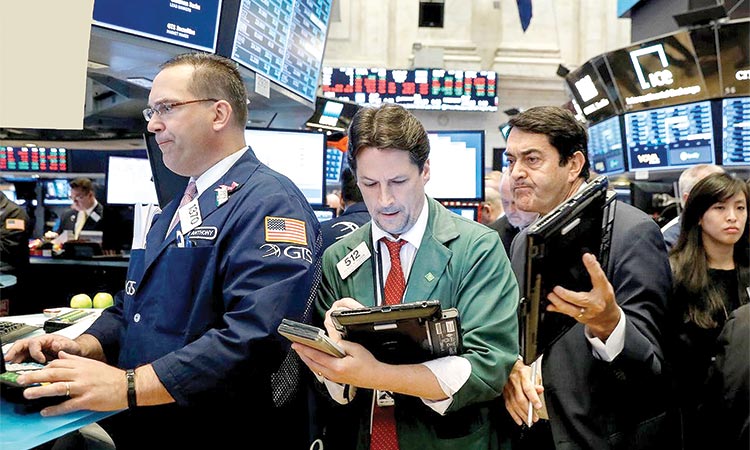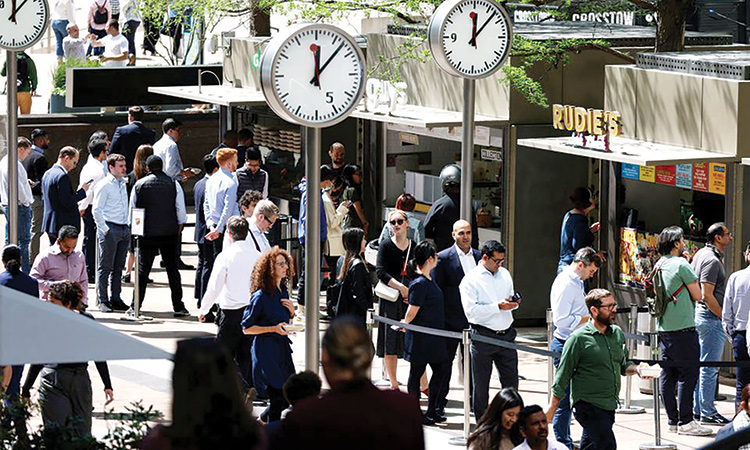British grocery inflation eases slightly to 17.3 per cent in April

A customer wearing a protective face mask shops at a Morrisons store in St Albans, Britain. Reuters
Market researcher Kantar said grocery inflation was 17.3 per cent in the four weeks to April 16, down from the record 17.5 per cent in its March data set. It said April saw a tenth month in a row of double digit grocery price inflation, with prices rising fastest in markets such as eggs, milk and cheese.
“The latest drop in grocery price inflation will be welcome news for shoppers but it’s too early to call the top,” Fraser McKevitt, Kantar’s head of retail and consumer insight, said. “We’ve been here before when the rate fell at the end of 2022, only for it to rise again over the first quarter of this year,” he said.
The Kantar data for April provides the most up to date snapshot of UK grocery inflation. Official UK data published last week showed overall consumer price inflation fell to 10.1 per cent in March. However, prices of food and non-alcoholic drinks were 19.1 per cent higher in March than a year earlier, the biggest such rise since August 1977.
The British Retail Consortium, which represents the major supermarket groups, has said it expects consumer food prices to start coming down over the next few months, while the Bank of England has forecast overall inflation will drop to below 4 per cent by the end of the year. Kantar said UK grocery sales rose 8.1 per cent over the four week period year-on-year. It said Britons were continuing to turn to supermarkets’ own label lines, which are usually cheaper than branded products, to help manage spending. Own-label sales were up 13.5 per cent year-on-year with the very cheapest value own-label lines up 46 per cent, while branded sales were up 4.4 per cent.
Discounters Aldi and Lidl both hit record market shares over the 12 weeks to April 16, at 10.1 per cent and 7.6 per cent respectively. Lidl was the fastest growing grocer with sales up 25.1 per cent, while Aldi’s rose 25.0 per cent.
“Consumers are continuing to shop around, visiting at least three major retailers every month on average. The discounters have been big beneficiaries of this,” added McKevitt.
Meanwhile the Britain’s government borrowed less than predicted in the financial year that ended in March, according to data on Tuesday which showed finance minister Jeremy Hunt may be able to adopt a less austere stance ahead of the next general election.
The Office for National Statistics (ONS) reported borrowing of 139.2 billion pounds ($174 billion) for the fiscal year to the end of March, or 5.5 per cent of gross domestic product - up from 121.1 billion pounds in 2021/22, or 5.2 per cent of GDP.
The Office for Budget Responsibility - whose forecasts are used by the government - estimated last month that borrowing for the 2022/23 financial year would be 152.4 billion pounds, or 6.1 per cent of economic output.
Overall the figures chimed with other readings of Britain’s economy that point to a better-than-expected performance in recent months, even if the overall picture remains one of stagnant activity and high inflation.
Hunt faces pressure from lawmakers in his Conservative Party to cut taxes before an election expected in 2024, while public sector workers’ unions are pushing for pay increases to offset the impact of inflation’s surge above 10 per cent.
“The big picture is that we remain reasonably convinced that ... Hunt will be able to announce a package of tax cuts ahead of a likely general election next year, even if the underlying growth trend this year remains subdued,” said Philip Shaw, chief economist at Investec. In March alone, the government borrowed 21.5 billion pounds, just over the 20 billion pound consensus in a Reuters poll.
A new assessment of the value of student loans was a big factor behind a cut in estimated borrowing of 14.6 billion pounds over the 11 months to February, the ONS said.
The government’s total energy bill subsidies cost about 8 billion pounds in March, taking the six-month total cost to 41.2 billion pounds. Public sector net debt for 2022/23 stood at 2.53 trillion pounds or 99.6 per cent of economic output - a proportion last seen in the early 1960s.
A new estimate of the public sector’s net worth - the difference between liabilities and assets - showed a deficit of 606 billion pounds, up from 530 billion pounds last year.
“A growing net worth deficit shows that we are failing to invest in our future, and we need to turn this record around urgently,” said Cara Pacitti, senior economist at the Resolution Foundation think tank. The British factory orders and output contracted as stocks of finished goods piled higher, according to a survey on Tuesday that underlined the recent weak performance of the manufacturing sector but also pointed to easing inflation pressures ahead.







